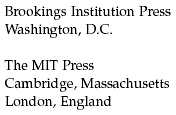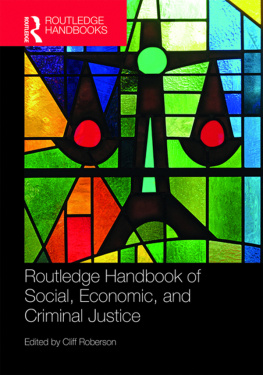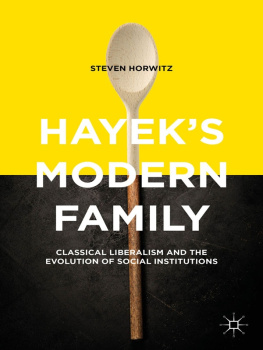Cover

| title | : | Social Dynamics MIT Press Series On Economic Learning and Social Evolution |
| author | : | Durlauf, Steven N.; Young, H. Peyton |
| publisher | : | MIT Press |
| isbn10 | asin | : | 0262041863 |
| print isbn13 | : | 9780262041867 |
| ebook isbn13 | : | 9780585386669 |
| language | : | English |
| subject | Social interaction, Social interaction--Economic aspects, Economics--Sociological aspects. |
| publication date | : | 2001 |
| lcc | : | HM1111.S55 2001eb |
| ddc | : | 306.3 |
| subject | : | Social interaction, Social interaction--Economic aspects, Economics--Sociological aspects. |
Page i
Social Dynamics
Page ii
Economic Learning and Social Evolution
General Editor
Ken Binmore, Director of the Economic Learning and Social
Evolution Centre, University College London.
1. Evolutionary Games and Equilibrium Selection, Larry Samuelson, 1997
2. The Theory of Learning in Games, Drew Fudenberg and David K. Levine, 1998
3. Game Theory and the Social Contract, Volume 2: Just Playing, Ken Binmore, 1998
4. Social Dynamics, Steven N. Durlauf and H. Peyton Young, editors, 2001
Page iii
Social Dynamics
Edited by
Steven N. Durlauf and
H. Peyton Young

Page iv
2001 Brookings Institution
All rights reserved. No part of this book may be reproduced in any form by any electronic or mechanical means (including photocopying, recording, or information storage and retrieval) without permission in writing from the publisher.
This book was set in Palatino by Best-set Typesetter Ltd., Hong Kong.
Printed and bound in the United States of America.
Library of Congress Cataloging-in-Publication Data
Social dynamics / edited by Steven N. Durlauf and H. Peyton Young.
p. cm. (Economic learning and social evolution)
Includes bibliographical references and index.
ISBN 0-262-04186-3 (alk. paper)
1. Social interaction. 2. Social interactionEconomic aspects.
3. EconomicsSociological aspects. I. Durlauf, Steven N. II. Young, H. Peyton,
1945 III. MIT Press series on economic learning and social evolution.
HM1111 .S55 2001
00-064586
This book was made possible by grants from the Alex C. Walker Educational and Charitable Foundation and the John D. and Catherine T. MacArthur Foundation.
Page v
Contents
Series Foreword | vii |
Preface | ix |
1 The New Social Economics Steven N. Durlauf and H. Peyton Young | |
2 The Interactions-Based Approach to Socioeconomic Behavior Lawrence E. Blume and Steven N. Durlauf | |
3 Policy Interventions, Low-Level Equilibria, and Social Interactions Robert A. Moffitt | |
4 Measuring Social Interactions Edward L. Glaeser and Jos A. Scheinkman | |
5 The Dynamics of Conformity H. Peyton Young | |
6 Individual Interactions, Group Conflicts, and the Evolution of Preferences Samuel Bowles | |
Page vi
7 The Emergence of Classes in a Multi-Agent Bargaining Model Robert L. Axtell, Joshua M. Epstein, and H. Peyton Young | |
8 The Breakdown of Social Contracts Ken Binmore | |
Index | |
Page vii
Series Foreword
The MIT Press series on Economic Learning and Social Evolution reflects the widespread renewal of interest in the dynamics of human interaction. This issue has provided a broad community of economists, psychologists, philosophers, biologists, anthropologists, and others with a sense of common purpose so strong that traditional interdisciplinary boundaries have begun to melt away.
Some of the books in the series will be works of theory. Others will be philosophical or conceptual in scope. Some will have an experimental or empirical focus. Some will be collections of papers with a common theme and a linking commentary. Others will have an expository character. Yet others will be monographs in which new ideas meet the light of day for the first time. But all will have two unifying features. The first will be a rejection of the outmoded notion that what happens away from equilibrium can safely be ignored. The second will be a recognition that it is no longer enough to speak in vague terms of bounded rationality and spontaneous order. As in all movements, the time comes to put the beef on the tableand the time for us is now.
Authors who share this ethos and would like to be part of the series are cordially invited to submit outlines of their proposed books for consideration. Within our frame of reference, we hope that a thousand flowers will bloom.
Ken Binmore
Director
Economic Learning and Social Evolution Centre
University College London
Gower Street
London WC1E 6BT, England
Page viii
This page intentionally left blank.
Page ix
Preface
A striking feature of the social sciences over the last decade has been a breaking down of traditional barriers between disciplines. More often than not, this has entailed the transference of economic methodology to other social sciences. One example is the emergence of rational choice models in political science, in which methodological individualism has been applied to phenomena ranging from elections to the behavior of juries. Similarly, empirical sociology has adopted formal approaches that have traditionally been found in econometrics.
At the same time, however, striking changes are at work within economics itself. Many economists have become persuaded that the traditional model of homo economicus needs to be invested with greater social and psychological realism. There are several reasons for this development. First, public policy has begun to focus on questions where social and psychological explanations of behavior seem essential in supplementing conventional economic explanations. In understanding persistent poverty, for example, any analysis that ignores role models, peer groups, and family environment in favor of facile conceptions of human capital formation would appear to be handicapped from the start.
Second, methodological advances in economic theory have permitted the incorporation of richer conceptions of human behavior into the formalism with which economics is conducted. One component of these methodological advances falls under the rubric of interactions-based models, which employ techniques from statistical mechanics and complex systems theory. Both components facilitate the modeling of heterogeneous populations of socioeconomic actors in ways that account for heterogeneity across individuals as well as direct as opposed to market-mediated interdependencies.
Next page







